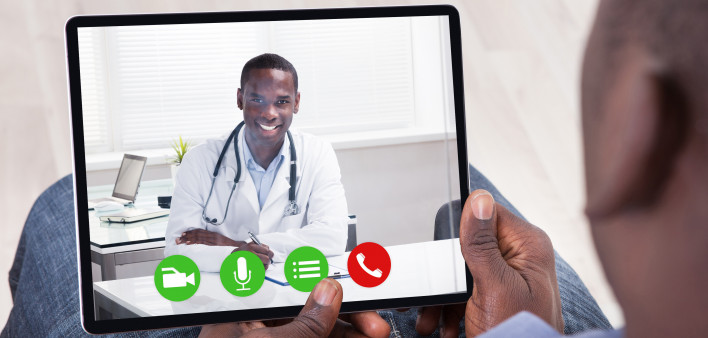Folks in Philadelphia at risk for HIV can now access pre- and post-exposure prophylaxis (PrEP and PEP) at no cost, even if they don’t have insurance, and without leaving the comfort and privacy of their own home. This month, the city launched a virtual program called Philadelphia TelePrEP to make the HIV prevention available to its residents.
Philadelphia TelePrEP is a program of the AIDS Activities Coordinating Office (AACO) of the Philadelphia Department of Public Health, which partnered with Albert Einstein Medical Center for the initiative.
What’s more, reports Metro Philadelphia, the program aims to make PrEP prescriptions available to clients within seven days—a major improvement from the wait times people often have to endure to see a health care provider in person.
“A lot of these providers are really overwhelmed, and they don’t have the capacity to deliver PrEP services to the people who are seeking them,” said Javontae Williams, a prevention program manager with AACO. Another objective is to help retain clients in the prevention program once they begin. Many folks, Williams said, abandon PrEP after about eight or nine months.
Philadelphia TelePrEP is the “first of its kind in the region and a true opportunity to bring PrEP to people where they live,” said AACO’s director, Kathleen Brady, MD, in a press statement from the city health department.
Philadelphia TelePrEP is part of the “Philly, Keep on Loving” campaign, which provides condoms, lube, public awareness, and testing and treatment for sexually transmitted infections, including syphilis and mpox.
More than 18,000 people are living with HIV in the city, and nearly 300,000 Philadelphians are at risk of contracting HIV, estimates the Philadelphia health department, noting that about 8,200 of these individuals have already been deemed good candidates for PrEP.
In addition to offering PrEP, the telehealth program also offers PEP, a regimen of HIV meds taken after potential exposure to keep the virus from taking hold in the body. PEP must be initiated no later than 72 hours after a potential exposure. It’s hoped that a virtual program will allow people to access the antiretrovirals much faster.
Philadelphia TelePrEP also hopes to address the disparities in access to HIV prevention among those disproportionately affected by the epidemic, notably Black and brown and, LGBTQ people and people who inject drugs.
“There’s a knowledge deficit in terms of people understanding what benefits are actually available to them,” AACO’s Williams told Metro Philadelphia. “I think we need to do much better about communicating that if you want PrEP, you can get PrEP.”
Information about TelePrEP and other sexual health campaigns, including links to sign up for PrEP and PEP, are found on PhillyKeeponLoving.com and through a helpline at 215-985-2437.
To learn more about this HIV prevention, click #PrEP, where you’ll find a collection of related articles, including:
“Disparities in PrEP for HIV Are Worsening,”
“Over 100 HIV Groups Urge Congress to Fund a PrEP Program,”
“Judge Rules That the Mandate to Cover PrEP for HIV Prevention Violates Religious Freedom,”
“Could Cabenuva and Apretude Injections Be Self-Administered?,”
“Leadership Changes at PrEP4All, the HIV Prevention Advocacy Group” and
“Most Women Know About PrEP, but Few Are Using It.”







Comments
Comments